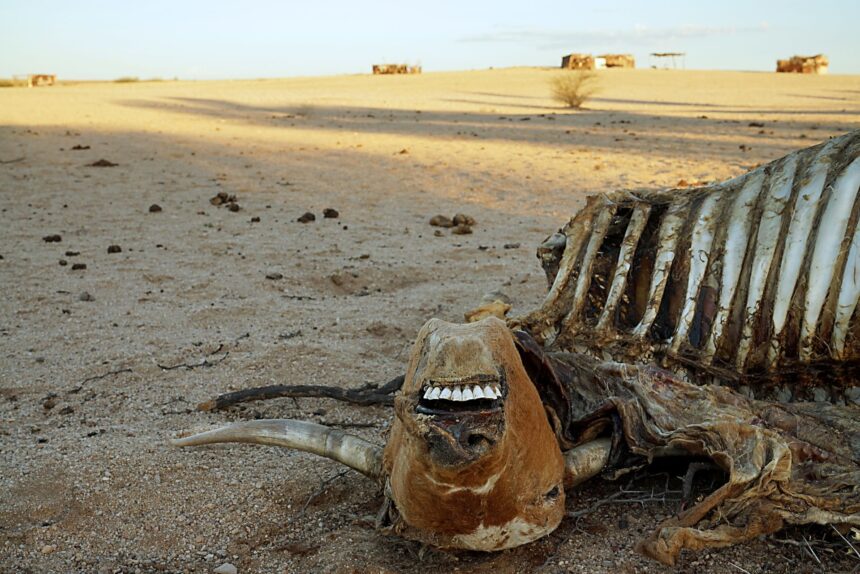Rudolf Gaiseb
Namibia is still grappling with a funding shortfall of about N$600 million to fully and timeously aid more than 1.26 million drought-stricken citizens from a looming hunger crisis, Deputy Prime Minister John Mutorwa recently shared.
Mutorwa, while receiving a donation of 500 boxes of frozen butter snoek from the National Fishing Corporation of Namibia (Fishcor) for the government’s drought relief programme, admitted that the social, economic and financial impacts of the drought have been catastrophic on citizens.
Fishcor’s donation was to the tune of N$240 000 and while Mutorwa was thankful for the timely contribution, he urged other corporates to come on board as government currently faces a funding shortfall of N$600 million.
Late last year, government revealed that it was facing a funding gap of about N$600 million to reach an additional 373 276 drought-hit households, which translates into 1.26 million people, or 41% of the country’s population.
In total, Namibia has set a budget of N$1.6 billion to roll out a multi-faceted drought relief programme, which includes food assistance to vulnerable households, cash incentives for livestock farmers, and water provision for drought-hit communities.
The N$600 million funding shortfall means the drought relief programme will not progress until or beyond June this year, Mutorwa added.
“Drought has been persistent in the northern regions of Namibia since last year, including the Erongo region. This crisis continues to place an indelible mark on the livelihoods of thousands of Namibian communities, who are hopeful that the good rainfalls forecasted will rescue the situation…”
“This contribution is addressing the broader objective of the Drought Response Plan, highlighting the gaps and needs required to effectively implement the drought relief programme. As a caring government, it is our responsibility to respond to the plight of the affected citizens,” said the deputy PM.
He urged all those involved in the distribution process to make sure that the donation is urgently and effectively dispatched to the affected communities.
In May last year, President Nangolo Mbumba declared a state of emergency on the protracted drought, which has seen the country’s aggregated cereal production of white maize, sorghum, pearl millet and wheat decreasing by 53%, while dam levels countrywide have dropped.
As a result of the diminishing crop output and declining dam levels, there has been a significant deterioration in household food security in various regions of the country.
Although the government has since 2023 continued rolling out drought aid to farmers and households countrywide, limited funds and competing priorities have somewhat stalled efforts to reach all affected households.
At the continental level, experts have pointed to the situation around climate change, and how it continues to become unpredictable for most countries, which calls for better preparedness and progressive policy interventions.



